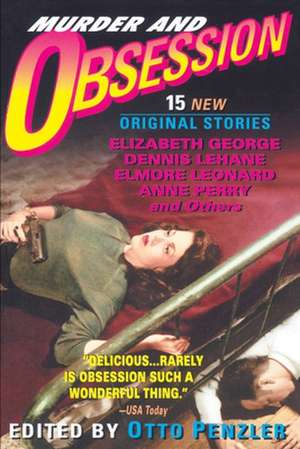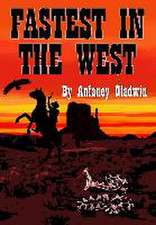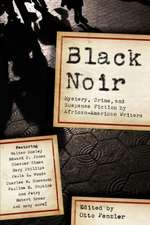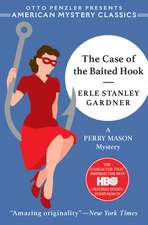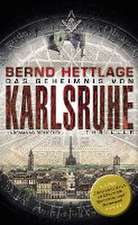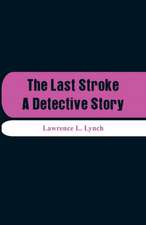Murder and Obsession
Editat de Otto Penzleren Limba Engleză Paperback – 29 feb 2000
Her toenails were bloodred, her lips were blue in Edna Buchanan's "The Red Shoes," a riveting tale that takes us into the life of a foot fetishist who steps into the middle of a murder....What happens when a hard-nosed insurance investigator lights up a joint and sniffs out a case of arson? It's a tale that only Elmore Leonard could tell, in "Sparks."...Elizabeth George reaches into English history in "I, Richard," as an academic obsessed by a priceless artifact plots a deadly course of seduction--only to discover that fate is the most quixotic mistress of all.
From lethal spikes to fatal kisses, from mad dogs to battle-crazed Englishmen, here indeed is Murder and Obsession, in these and 12 other all-new stories from Anne Perry, Dennis Lehane, Eric van Lustbader and others. For these are the best of the best, America's favorite writers exploring a deliciously chilling subject: obsession at its most insidious.
From the Paperback edition.
Preț: 147.11 lei
Nou
Puncte Express: 221
Preț estimativ în valută:
28.16€ • 29.02$ • 23.77£
28.16€ • 29.02$ • 23.77£
Carte disponibilă
Livrare economică 11-25 februarie
Preluare comenzi: 021 569.72.76
Specificații
ISBN-13: 9780440613619
ISBN-10: 0440613612
Pagini: 464
Dimensiuni: 152 x 229 x 26 mm
Greutate: 0.68 kg
Editura: dell
ISBN-10: 0440613612
Pagini: 464
Dimensiuni: 152 x 229 x 26 mm
Greutate: 0.68 kg
Editura: dell
Notă biografică
Otto Penzler is the owner of The Mysterious Bookshop in New York City, Los Angeles, and London. The founder of The Mysterious Press and Otto Penzler Books, he is also the editor of the acclaimed collections Murder for Love and Murder for Revenge. He received an Edgar Award for the Encyclopedia of Mystery and Detection, and was honored by the Mystery Writers of America in 1994 with the Ellery Queen Award for his contributions in the publishing field. He lives in New York City.
From the Hardcover edition.
From the Hardcover edition.
Extras
Running Out of Dog
by Dennis Lehane
This thing with Blue and the dogs and Elgin Bern happened a while back, a few years after some of our boys--like Elgin Bern and Cal Sears--came back from Vietnam, and a lot of others--like Eddie Vorey and Carl Joe Carol, the Stewart cousins--didn't. We don't know how it worked in other towns, but that war put something secret in our boys who returned. Something quiet and untouchable. You sensed they knew things they'd never say, did things on the sly you'd never discover. Great card players, those boys, able to bluff with the best, let no joy show in their face no matter what they were holding.
A small town is a hard place to keep a secret, and a small Southern town with all that heat and all those open windows is an even harder place than most. But those boys who came back from overseas, they seemed to have mastered the trick ofprivacy. And the way it's always been in this town, you get a sizable crop of young, hard men coming up at the same time, they sort of set the tone.
So, not long after the war, we were a quieter town, a less trusting one (or so some of us seemed to think), and that's right when tobacco money and textile money reached a sort of critical mass and created construction money and pretty soon there was talk that our small town should maybe get a little bigger, maybe build something that would bring in more tourist dollars than we'd been getting from fireworks and pecans.
That's when some folks came up with this Eden Falls idea--a big carnival-type park with roller coasters and water slides and such. Why should all those Yankees spend all their money in Florida? South Carolina had sun too. Had golf courses and grapefruit and no end of KOA campgrounds.
So now a little town called Eden was going to have Eden Falls. We were going to be on the map, people said. We were going to be in all the brochures. We were small now, people said, but just you wait. Just you wait.
And that's how things stood back then, the year Perkin and Jewel Lut's marriage hit a few bumps and Elgin Bern took up with Shelley Briggs and no one seemed able to hold on to their dogs.
* * *
The problem with dogs in Eden, South Carolina, was that the owners who bred them bred a lot of them. Or they allowed them to run free where they met up with other dogs of opposite gender and achieved the same result. This wouldn't have been so bad if Eden weren't so close to I-95, and if the dogs weren't in the habit of bolting into traffic and fucking up the bumpers of potential tourists.
The mayor, Big Bobby Vargas, went to a mayoral conference up in Beaufort,where the governor made a surprise appearance to tell everyone how pissed off he was about this dog thing. Lot of money being poured into Eden these days, the governor said, lot of steps being taken to change her image, and he for one would be goddamned if a bunch of misbehaving canines was going to mess all that up.
"Boys," he'd said, looking Big Bobby Vargas dead in the eye, "they're starting to call this state the Devil's Kennel 'cause of all them pooch corpses along the interstate. And I don't know about you all, but I don't think that's a real pretty name."
Big Bobby told Elgin and Blue he'd never heard anyone call it the Devil's Kennel in his life. Heard a lot worse, sure, but never that. Big Bobby said the governor was full of shit. But, being the governor and all, he was sort of entitled.
The dogs in Eden had been a problem going back to the twenties and a part-time breeder named J. Mallon Ellenburg who, if his arms weren't up to their elbows in the guts of the tractors and combines he repaired for a living, was usually lashing out at something--his family when they weren't quick enough, his dogs when the family was. J. Mallon Ellenburg's dogs were mixed breeds and mongrels and they ran in packs, as did their offspring, and several generations later, those packs still moved through the Eden night like wolves, their bodies stripped to muscle and gristle, tense and angry, growling in the dark at J. Mallon Ellenburg's ghost.
Big Bobby went to the trouble of measuring exactly how much of 95 crossed through Eden, and he came up with 2.8 miles. Not much really, but still an average of .74 dog a day or 4.9 dogs a week. Big Bobby wanted the rest of the state funds the governor was going to be doling out at year's end, and if that meant getting rid of five dogs a week, give or take, then that's what was going to get done.
"On the QT," he said to Elgin and Blue, "on the QT, what we going to do, boys, is set up in some trees and shoot every canine who gets within barking distance of that interstate."
Elgin didn't much like this "we" stuff. First place, Big Bobby'd said "we" that time in Double O's four years ago. This was before he'd become mayor, when he was nothing more than a county tax assessor who shot pool at Double O's every other night, same as Elgin and Blue. But one night, after Harlan and Chub Uke had roughed him up over a matter of some pocket change, and knowing that neither Elgin nor Blue was too fond of the Uke family either, Big Bobby'd said, "We going to settle those boys' asses tonight," and started running his mouth the minute the brothers entered the bar.
Time the smoke cleared, Blue had a broken hand, Harlan and Chub were curled up on the floor, and Elgin's lip was busted. Big Bobby, meanwhile, was hiding under the pool table, and Cal Sears was asking who was going to pay for the pool stick Elgin had snapped across the back of Chub's head.
So Elgin heard Mayor Big Bobby saying "we" and remembered the ten dollars it had cost him for that pool stick, and he said, "No, sir, you can count me out this particular enterprise."
Big Bobby looked disappointed. Elgin was a veteran of a foreign war, former Marine, a marksman. "Shit," Big Bobby said, "what good are you, you don't use the skills Uncle Sam spent good money teaching you?"
Elgin shrugged. "Damn, Bobby. I guess not much."
But Blue kept his hand in, as both Big Bobby and Elgin knew he would. All the job required was a guy didn't mind sitting in a tree who liked to shoot things. Hell, Blue was home.
* * *
Elgin didn't have the time to be sitting up in a tree anyway. The past few months, he'd been working like crazy after they'd broke ground at Eden Falls--mixing cement, digging postholes, draining swamp water to shore up the foundation--with the real work still to come. There'd be several more months of drilling and bilging, spreading cement like cake icing, and erecting scaffolding to erect walls to erect facades. There'd be the hump-and-grind of rolling along in the dump trucks and drill trucks, the forklifts and cranes and industrial diggers, until the constant heave and jerk of them drove up his spine or into his kidneys like a corkscrew.
Time to sit up in a tree shooting dogs? Shit. Elgin didn't have time to take a piss some days.
And then on top of all the work, he'd been seeing Drew Briggs's ex-wife, Shelley, lately. Shelley was the receptionist at Perkin Lut's Auto Emporium, and one day Elgin had brought his Impala in for a tire rotation and they'd got to talking. She'd been divorced from Drew over a year, and they waited a couple of months to show respect, but after a while they began showing up at Double O's and down at the IHOP together.
Once they drove clear to Myrtle Beach together for the weekend. People asked them what it was like, and they said, "Just like the postcards." Since the postcards never mentioned the price of a room at the Hilton, Elgin and Shelley didn't mention that all they'd done was drive up and down the beach twice before settling in a motel a bit west in Conway. Nice, though; had a color TV and one of those switches turned the bathroom into a sauna if you let the shower run. They'd started making love in the sauna, finished up on the bed with the steam coiling out from the bathroom and brushing their heels. Afterward, he pushed her hair back off her forehead and looked in her eyes and told her he could get used to this.
She said, "But wouldn't it cost a lot to install a sauna in your trailer?" then waited a full thirty seconds before she smiled.
Elgin liked that about her, the way she let him know he was still just a man after all, always would take himself too seriously, part of his nature. Letting him know she might be around to keep him apprised of that fact every time he did. Keep him from pushing a bullet into the breech of a thirty-aught-six, slamming the bolt home, firing into the flank of some wild dog.
Sometimes, when they'd shut down the site early for the day--if it had rained real heavy and the soil loosened near a foundation, or if supplies were running late--he'd drop by Lut's to see her. She'd smile as if he'd brought her flowers, say, "Caught boozing on the job again?" or some other smartass thing, but it made him feel good, as if something in his chest suddenly realized it was free to breathe.
Before Shelley, Elgin had spent a long time without a woman he could publicly acknowledge as his. He'd gone with Mae Shiller from fifteen to nineteen, but she'd gotten lonely while he was overseas, and he'd returned to find her gone from Eden, married to a boy up in South of the Border, the two of them working a corn-dog concession stand, making a tidy profit, folks said. Elgin dated some, but it took him a while to get over Mae, to get over the loss of something he'd always expected to have, the sound of her laugh and an image of her stepping naked from Cooper's Lake, her pale flesh beaded with water, having been the things that got Elgin through the jungle, through the heat, through the ticking of his own death he'd heard in his ears every night he'd been over there.
About a year after he'd come home, Jewel Lut had come to visit her mother, who still lived in the trailer park where Jewel had grown up with Elgin and Blue, where Elgin still lived. On her way out, she'd dropped by Elgin's and they'd sat out front of his trailer in some folding chairs, had a few drinks, talked about old times. He told her a bit about Vietnam, and she told him a bit about marriage. How it wasn't what you expected, how Perkin Lut might know a lot of things but he didn't know a damn sight about having fun.
There was something about Jewel Lut that sank into men's flesh the way heat did. It wasn't just that she was pretty, had a beautiful body, moved in a loose, languid way that made you picture her naked no matter what she was wearing. No, there was more to it. Jewel, never the brightest girl in town and not even the most charming, had something in her eyes that none of the women Elgin had ever met had; it was a capacity for living, for taking moments--no matter how small or inconsequential--and squeezing every last thing you could out of them. Jewel gobbled up life, dove into it like it was a cool pond cut in the shade of a mountain on the hottest day of the year.
That look in her eyes--the one that never left--said, Let's have fun, goddammit. Let's eat. Now.
She and Elgin hadn't been stupid enough to do anything that night, not even after Elgin caught that look in her eyes, saw it was directed at him, saw she wanted to eat.
Elgin knew how small Eden was, how its people loved to insinuate and pry and talk. So he and Jewel worked it out, a once-a-week thing mostly that happened down in Carlyle, at a small cabin had been in Elgin's family since before the War Between the States. There, Elgin and Jewel were free to partake of each other, squeeze and bite and swallow and inhale each other, to make love in the lake, on the porch, in the tiny kitchen.
They hardly ever talked, and when they did it was about nothing at all, really--the decline in quality of the meat at Billy's Butcher Shop, rumors that parking meters were going to be installed in front of the courthouse, if McGarrett and the rest of Five-O would ever put the cuffs on Wo Fat.
There was an unspoken understanding that he was free to date any woman he chose and that she'd never leave Perkin Lut. And that was just fine. This wasn't about love; it was about appetite.
Sometimes, Elgin would see her in town or hear Blue speak about her in that puppy-dog-love way he'd been speaking about her since high school, and he'd find himself surprised by the realization that he slept with this woman. That no one knew. That it could go on forever, if both of them remained careful, vigilant against the wrong look, the wrong tone in their voices when they spoke in public.
He couldn't entirely put his finger on what need she satisfied, only that he needed her in that lakefront cabin once a week, that it had something to do with walking out of the jungle alive, with the ticking of his own death he'd heard for a full year. Jewel was somehow reward for that, a fringe benefit. To be naked and spent with her lying atop him and seeing that look in her eyes that said she was ready to go again, ready to gobble him up like oxygen. He'd earnedthat by shooting at shapes in the night, pressed against those damp foxhole walls that never stayed shored up for long, only to come home to a woman who couldn't wait, who'd discarded him as easily as she would a once-favored doll she'd grown beyond,looked back upon with a wistful mix of nostalgia and disdain.
He'd always told himself that when he found the right woman, his passion for Jewel, his need for those nights at the lake, would disappear. And, truth was, since he'd been with Shelley Briggs, he and Jewel had cooled it. Shelley wasn't Perkin, he told Jewel; she'd figure it out soon enough if he left town once a week, came back with bite marks on his abdomen.
Jewel said, "Fine. We'll get back to it whenever you're ready."
Knowing there'd be a next time, even if Elgin wouldn't admit it to himself.
So Elgin, who'd been so lonely in the year after his discharge, now had two women. Sometimes, he didn't know what to think of that. When you were alone, the happiness of others boiled your insides. Beauty seemed ugly. Laughter seemed evil. The casual grazing of one lover's hand into another was enough to make you want to cut them off at the wrist. I will never be loved, you said. I will never know joy.
He wondered sometimes how Blue made it through. Blue, who'd never had a girlfriend he hadn't rented by the half hour. Who was too ugly and small and just plain weird to evoke anything in women but fear or pity. Blue, who'd been carrying a torch for Jewel Lut since long before she married Perkin and kept carrying it with a quiet fever Elgin could only occasionally identify with. Blue, he knew, saw Jewel Lut as a queen, as the only woman who existed for him in Eden, South Carolina. All because she'd been nice to him, pals with him and Elgin, back about a thousand years ago, before sex, before breasts, before Elgin or Blue had even the smallest clue what that thing between their legs was for, before Perkin Lut had come along with his daddy's money and his nice smile and his bullshit stories about how many men he'd have killed in the war if only the draft board had seen fit to let him go.
Blue figured if he was nice enough, kind enough, waited long enough--then one day Jewel would see his decency, need to cling to it.
Elgin never bothered telling Blue that some women didn't want decency. Some women didn't want a nice guy. Some women, and some men too, wanted to get into a bed, turn out the lights, and feast on each other like animals until it hurt to move.
Blue would never guess that Jewel was that kind of woman, because she was always so sweet to him, treated him like a child really, and with every friendly hello she gave him, every pat on the shoulder, every "What you been up to, old bud?" Blue pushed her further and further up the pedestal he'd built in his mind.
"I seen him at the Emporium one time," Shelley told Elgin. "He just come in for no reason anyone understood and sat reading magazines until Jewel came in to see Perkin about something. And Blue, he just stared at her. Just stared at her talking to Perkin in the showroom. When she finally looked back, he stood up and left."
Elgin hated hearing about, talking about, or thinking about Jewel when he was with Shelley. It made him feel unclean and unworthy.
"Crazy love," he said to end the subject.
"Crazy something, babe."
Nights sometimes, Elgin would sit with Shelley in front of his trailer, listen to the cicadas hum through the scrawny pine, smell the night and the rock salt mixed with gravel; the pina colada shampoo Shelley used made him think of Hawaii though he'd never been, and he'd think how their love wasn't crazy love, wasn't burning so fast and furious it'd burn itself out they weren't careful. And that was fine with him. If he could just get his head around this Jewel Lut thing, stop seeing her naked and waiting and looking back over her shoulder at him in the cabin, then he could make something with Shelley. She was worth it. She might not be able to fuck like Jewel, and, truth be told, he didn't laugh as much with her, but Shelley was what you aspired to. A good woman, who'd be a good mother, who'd stick by you when times got tough. Sometimes he'd take her hand in his and hold it for no other reason but the doing of it. She caught him one night, some look in his eyes, maybe the way he tilted his head to look at he
r small white hand in his big brown one.
She said, "Damn, Elgin, if you ain't simple sometimes." Then she came out of her chair in a rush and straddled him, kissed him as if she were trying to take a piece of him back with her. She said, "Baby, we ain't getting any younger. You know?"
And he knew, somehow, at that moment why some men build families and others shoot dogs. He just wasn't sure where he fit in the equation.
He said, "We ain't, are we?"
* * *
Blue had been Elgin's best buddy since either of them could remember, but Elgin had been wondering about it lately. Blue'd always been a little different, something Elgin liked, sure, but there was more to it now. Blue was the kind of guy you never knew if he was quiet because he didn't have anything to say or, because what he had to say was so horrible, he knew enough not to send it out into the atmosphere.
When they'd been kids, growing up in the trailer park, Blue used to be out at all hours because his mother was either entertaining a man or had gone out and forgotten to leave him the key. Back then, Blue had this thing for cockroaches. He'd collect them in a jar, then drop bricks on them to test their resiliency. He told Elgin once, "That's what they are--resilient. Every generation, we have to come up with new ways to kill 'em because they get immune to the poisons we had before." After a while, Blue took to dousing them in gasoline, lighting them up, seeing how resilient they were then.
Elgin's folks told him to stay away from the strange, dirty kid with the white-trash mother, but Elgin felt sorry for Blue. He was half Elgin's size even though they were the same age; you could place your thumb and forefinger around Blue's biceps and meet them on the other side. Elgin hated how Blue seemed to have only two pairs of clothes, both usually dirty, and how sometimes they'd pass his trailer together and hear the animal sounds coming from inside, the grunts and moans, the slapping of flesh. Half the time you couldn't tell if Blue's old lady was in there fucking or fighting. And always the sound of country music mingled in with all that animal noise, Blue's mother and her man of the moment listening to it on the transistor radio she'd given Blue one Christmas.
"My fucking radio," Blue said once and shook his small head, the only time Elgin ever saw him react to what went on in that trailer.
Blue was a reader--knew more about science and ecology, about anatomy and blue whales and conversion tables than anyone Elgin knew. Most everyone figured the kid for a mute--hell, he'd been held back twice in fourth grade--but with Elgin he'd sometimes chat up a storm while they puffed smokes together down at the drainage ditch behind the park. He'd talk about whales, how they bore only one child, who they were fiercely protective of, but how if another child was orphaned, a mother whale would take it as her own, protect it as fiercely as she did the one she gave birth to. Hetold Elgin how sharks never slept, how electrical currents worked, what a depth charge was. Elgin, never much of a talker, just sat and listened, ate it up and waited for more.
The older they got, the more Elgin became Blue's protector, till finally, the year Blue's face exploded with acne, Elgin got in about two fights a day until there was no one left to fight. Everyone knew--they were brothers. And if Elgin didn't get you from the front, Blue was sure to take care of you from behind, like that time a can of acid fell on Roy Hubrist's arm in shop, or the time someone hit Carnell Lewis from behind with a brick, then cut his Achilles tendon with a razor while he lay out cold. Everyone knew it was Blue, even if no one actually saw him do it.
Elgin figured with Roy and Carnell, they'd had it coming. No great loss. It was since Elgin'd come back from Vietnam, though, that he'd noticed some things and kept them to himself, wondered what he was going to do the day he'd know he had to do something.
There was the owl someone had set afire and hung upside down from a telephone wire, the cats who turned up missing in the blocks that surrounded Blue's shack off Route 11. There were the small pink panties Elgin had seen sticking out from under Blue's bed one morning when he'd come to get him for some cleanup work at a site. He'd checked the missing-persons reports for days, but it hadn't come to anything, so he'd just decided Blue had picked them up himself, fed a fantasy or two. He didn't forget, though, couldn't shake the way those panties had curled upward out of the brown dust under Blue's bed, seemed to be pleading for something.
He'd never bothered asking Blue about any of this. That never worked. Blue just shut down at times like that, stared off somewhere as if something you couldn't hear was drowning out your words, something you couldn't see was taking up his line of vision. Blue, floating away on you, until you stopped cluttering up his mind with useless talk.
From the Hardcover edition.
by Dennis Lehane
This thing with Blue and the dogs and Elgin Bern happened a while back, a few years after some of our boys--like Elgin Bern and Cal Sears--came back from Vietnam, and a lot of others--like Eddie Vorey and Carl Joe Carol, the Stewart cousins--didn't. We don't know how it worked in other towns, but that war put something secret in our boys who returned. Something quiet and untouchable. You sensed they knew things they'd never say, did things on the sly you'd never discover. Great card players, those boys, able to bluff with the best, let no joy show in their face no matter what they were holding.
A small town is a hard place to keep a secret, and a small Southern town with all that heat and all those open windows is an even harder place than most. But those boys who came back from overseas, they seemed to have mastered the trick ofprivacy. And the way it's always been in this town, you get a sizable crop of young, hard men coming up at the same time, they sort of set the tone.
So, not long after the war, we were a quieter town, a less trusting one (or so some of us seemed to think), and that's right when tobacco money and textile money reached a sort of critical mass and created construction money and pretty soon there was talk that our small town should maybe get a little bigger, maybe build something that would bring in more tourist dollars than we'd been getting from fireworks and pecans.
That's when some folks came up with this Eden Falls idea--a big carnival-type park with roller coasters and water slides and such. Why should all those Yankees spend all their money in Florida? South Carolina had sun too. Had golf courses and grapefruit and no end of KOA campgrounds.
So now a little town called Eden was going to have Eden Falls. We were going to be on the map, people said. We were going to be in all the brochures. We were small now, people said, but just you wait. Just you wait.
And that's how things stood back then, the year Perkin and Jewel Lut's marriage hit a few bumps and Elgin Bern took up with Shelley Briggs and no one seemed able to hold on to their dogs.
* * *
The problem with dogs in Eden, South Carolina, was that the owners who bred them bred a lot of them. Or they allowed them to run free where they met up with other dogs of opposite gender and achieved the same result. This wouldn't have been so bad if Eden weren't so close to I-95, and if the dogs weren't in the habit of bolting into traffic and fucking up the bumpers of potential tourists.
The mayor, Big Bobby Vargas, went to a mayoral conference up in Beaufort,where the governor made a surprise appearance to tell everyone how pissed off he was about this dog thing. Lot of money being poured into Eden these days, the governor said, lot of steps being taken to change her image, and he for one would be goddamned if a bunch of misbehaving canines was going to mess all that up.
"Boys," he'd said, looking Big Bobby Vargas dead in the eye, "they're starting to call this state the Devil's Kennel 'cause of all them pooch corpses along the interstate. And I don't know about you all, but I don't think that's a real pretty name."
Big Bobby told Elgin and Blue he'd never heard anyone call it the Devil's Kennel in his life. Heard a lot worse, sure, but never that. Big Bobby said the governor was full of shit. But, being the governor and all, he was sort of entitled.
The dogs in Eden had been a problem going back to the twenties and a part-time breeder named J. Mallon Ellenburg who, if his arms weren't up to their elbows in the guts of the tractors and combines he repaired for a living, was usually lashing out at something--his family when they weren't quick enough, his dogs when the family was. J. Mallon Ellenburg's dogs were mixed breeds and mongrels and they ran in packs, as did their offspring, and several generations later, those packs still moved through the Eden night like wolves, their bodies stripped to muscle and gristle, tense and angry, growling in the dark at J. Mallon Ellenburg's ghost.
Big Bobby went to the trouble of measuring exactly how much of 95 crossed through Eden, and he came up with 2.8 miles. Not much really, but still an average of .74 dog a day or 4.9 dogs a week. Big Bobby wanted the rest of the state funds the governor was going to be doling out at year's end, and if that meant getting rid of five dogs a week, give or take, then that's what was going to get done.
"On the QT," he said to Elgin and Blue, "on the QT, what we going to do, boys, is set up in some trees and shoot every canine who gets within barking distance of that interstate."
Elgin didn't much like this "we" stuff. First place, Big Bobby'd said "we" that time in Double O's four years ago. This was before he'd become mayor, when he was nothing more than a county tax assessor who shot pool at Double O's every other night, same as Elgin and Blue. But one night, after Harlan and Chub Uke had roughed him up over a matter of some pocket change, and knowing that neither Elgin nor Blue was too fond of the Uke family either, Big Bobby'd said, "We going to settle those boys' asses tonight," and started running his mouth the minute the brothers entered the bar.
Time the smoke cleared, Blue had a broken hand, Harlan and Chub were curled up on the floor, and Elgin's lip was busted. Big Bobby, meanwhile, was hiding under the pool table, and Cal Sears was asking who was going to pay for the pool stick Elgin had snapped across the back of Chub's head.
So Elgin heard Mayor Big Bobby saying "we" and remembered the ten dollars it had cost him for that pool stick, and he said, "No, sir, you can count me out this particular enterprise."
Big Bobby looked disappointed. Elgin was a veteran of a foreign war, former Marine, a marksman. "Shit," Big Bobby said, "what good are you, you don't use the skills Uncle Sam spent good money teaching you?"
Elgin shrugged. "Damn, Bobby. I guess not much."
But Blue kept his hand in, as both Big Bobby and Elgin knew he would. All the job required was a guy didn't mind sitting in a tree who liked to shoot things. Hell, Blue was home.
* * *
Elgin didn't have the time to be sitting up in a tree anyway. The past few months, he'd been working like crazy after they'd broke ground at Eden Falls--mixing cement, digging postholes, draining swamp water to shore up the foundation--with the real work still to come. There'd be several more months of drilling and bilging, spreading cement like cake icing, and erecting scaffolding to erect walls to erect facades. There'd be the hump-and-grind of rolling along in the dump trucks and drill trucks, the forklifts and cranes and industrial diggers, until the constant heave and jerk of them drove up his spine or into his kidneys like a corkscrew.
Time to sit up in a tree shooting dogs? Shit. Elgin didn't have time to take a piss some days.
And then on top of all the work, he'd been seeing Drew Briggs's ex-wife, Shelley, lately. Shelley was the receptionist at Perkin Lut's Auto Emporium, and one day Elgin had brought his Impala in for a tire rotation and they'd got to talking. She'd been divorced from Drew over a year, and they waited a couple of months to show respect, but after a while they began showing up at Double O's and down at the IHOP together.
Once they drove clear to Myrtle Beach together for the weekend. People asked them what it was like, and they said, "Just like the postcards." Since the postcards never mentioned the price of a room at the Hilton, Elgin and Shelley didn't mention that all they'd done was drive up and down the beach twice before settling in a motel a bit west in Conway. Nice, though; had a color TV and one of those switches turned the bathroom into a sauna if you let the shower run. They'd started making love in the sauna, finished up on the bed with the steam coiling out from the bathroom and brushing their heels. Afterward, he pushed her hair back off her forehead and looked in her eyes and told her he could get used to this.
She said, "But wouldn't it cost a lot to install a sauna in your trailer?" then waited a full thirty seconds before she smiled.
Elgin liked that about her, the way she let him know he was still just a man after all, always would take himself too seriously, part of his nature. Letting him know she might be around to keep him apprised of that fact every time he did. Keep him from pushing a bullet into the breech of a thirty-aught-six, slamming the bolt home, firing into the flank of some wild dog.
Sometimes, when they'd shut down the site early for the day--if it had rained real heavy and the soil loosened near a foundation, or if supplies were running late--he'd drop by Lut's to see her. She'd smile as if he'd brought her flowers, say, "Caught boozing on the job again?" or some other smartass thing, but it made him feel good, as if something in his chest suddenly realized it was free to breathe.
Before Shelley, Elgin had spent a long time without a woman he could publicly acknowledge as his. He'd gone with Mae Shiller from fifteen to nineteen, but she'd gotten lonely while he was overseas, and he'd returned to find her gone from Eden, married to a boy up in South of the Border, the two of them working a corn-dog concession stand, making a tidy profit, folks said. Elgin dated some, but it took him a while to get over Mae, to get over the loss of something he'd always expected to have, the sound of her laugh and an image of her stepping naked from Cooper's Lake, her pale flesh beaded with water, having been the things that got Elgin through the jungle, through the heat, through the ticking of his own death he'd heard in his ears every night he'd been over there.
About a year after he'd come home, Jewel Lut had come to visit her mother, who still lived in the trailer park where Jewel had grown up with Elgin and Blue, where Elgin still lived. On her way out, she'd dropped by Elgin's and they'd sat out front of his trailer in some folding chairs, had a few drinks, talked about old times. He told her a bit about Vietnam, and she told him a bit about marriage. How it wasn't what you expected, how Perkin Lut might know a lot of things but he didn't know a damn sight about having fun.
There was something about Jewel Lut that sank into men's flesh the way heat did. It wasn't just that she was pretty, had a beautiful body, moved in a loose, languid way that made you picture her naked no matter what she was wearing. No, there was more to it. Jewel, never the brightest girl in town and not even the most charming, had something in her eyes that none of the women Elgin had ever met had; it was a capacity for living, for taking moments--no matter how small or inconsequential--and squeezing every last thing you could out of them. Jewel gobbled up life, dove into it like it was a cool pond cut in the shade of a mountain on the hottest day of the year.
That look in her eyes--the one that never left--said, Let's have fun, goddammit. Let's eat. Now.
She and Elgin hadn't been stupid enough to do anything that night, not even after Elgin caught that look in her eyes, saw it was directed at him, saw she wanted to eat.
Elgin knew how small Eden was, how its people loved to insinuate and pry and talk. So he and Jewel worked it out, a once-a-week thing mostly that happened down in Carlyle, at a small cabin had been in Elgin's family since before the War Between the States. There, Elgin and Jewel were free to partake of each other, squeeze and bite and swallow and inhale each other, to make love in the lake, on the porch, in the tiny kitchen.
They hardly ever talked, and when they did it was about nothing at all, really--the decline in quality of the meat at Billy's Butcher Shop, rumors that parking meters were going to be installed in front of the courthouse, if McGarrett and the rest of Five-O would ever put the cuffs on Wo Fat.
There was an unspoken understanding that he was free to date any woman he chose and that she'd never leave Perkin Lut. And that was just fine. This wasn't about love; it was about appetite.
Sometimes, Elgin would see her in town or hear Blue speak about her in that puppy-dog-love way he'd been speaking about her since high school, and he'd find himself surprised by the realization that he slept with this woman. That no one knew. That it could go on forever, if both of them remained careful, vigilant against the wrong look, the wrong tone in their voices when they spoke in public.
He couldn't entirely put his finger on what need she satisfied, only that he needed her in that lakefront cabin once a week, that it had something to do with walking out of the jungle alive, with the ticking of his own death he'd heard for a full year. Jewel was somehow reward for that, a fringe benefit. To be naked and spent with her lying atop him and seeing that look in her eyes that said she was ready to go again, ready to gobble him up like oxygen. He'd earnedthat by shooting at shapes in the night, pressed against those damp foxhole walls that never stayed shored up for long, only to come home to a woman who couldn't wait, who'd discarded him as easily as she would a once-favored doll she'd grown beyond,looked back upon with a wistful mix of nostalgia and disdain.
He'd always told himself that when he found the right woman, his passion for Jewel, his need for those nights at the lake, would disappear. And, truth was, since he'd been with Shelley Briggs, he and Jewel had cooled it. Shelley wasn't Perkin, he told Jewel; she'd figure it out soon enough if he left town once a week, came back with bite marks on his abdomen.
Jewel said, "Fine. We'll get back to it whenever you're ready."
Knowing there'd be a next time, even if Elgin wouldn't admit it to himself.
So Elgin, who'd been so lonely in the year after his discharge, now had two women. Sometimes, he didn't know what to think of that. When you were alone, the happiness of others boiled your insides. Beauty seemed ugly. Laughter seemed evil. The casual grazing of one lover's hand into another was enough to make you want to cut them off at the wrist. I will never be loved, you said. I will never know joy.
He wondered sometimes how Blue made it through. Blue, who'd never had a girlfriend he hadn't rented by the half hour. Who was too ugly and small and just plain weird to evoke anything in women but fear or pity. Blue, who'd been carrying a torch for Jewel Lut since long before she married Perkin and kept carrying it with a quiet fever Elgin could only occasionally identify with. Blue, he knew, saw Jewel Lut as a queen, as the only woman who existed for him in Eden, South Carolina. All because she'd been nice to him, pals with him and Elgin, back about a thousand years ago, before sex, before breasts, before Elgin or Blue had even the smallest clue what that thing between their legs was for, before Perkin Lut had come along with his daddy's money and his nice smile and his bullshit stories about how many men he'd have killed in the war if only the draft board had seen fit to let him go.
Blue figured if he was nice enough, kind enough, waited long enough--then one day Jewel would see his decency, need to cling to it.
Elgin never bothered telling Blue that some women didn't want decency. Some women didn't want a nice guy. Some women, and some men too, wanted to get into a bed, turn out the lights, and feast on each other like animals until it hurt to move.
Blue would never guess that Jewel was that kind of woman, because she was always so sweet to him, treated him like a child really, and with every friendly hello she gave him, every pat on the shoulder, every "What you been up to, old bud?" Blue pushed her further and further up the pedestal he'd built in his mind.
"I seen him at the Emporium one time," Shelley told Elgin. "He just come in for no reason anyone understood and sat reading magazines until Jewel came in to see Perkin about something. And Blue, he just stared at her. Just stared at her talking to Perkin in the showroom. When she finally looked back, he stood up and left."
Elgin hated hearing about, talking about, or thinking about Jewel when he was with Shelley. It made him feel unclean and unworthy.
"Crazy love," he said to end the subject.
"Crazy something, babe."
Nights sometimes, Elgin would sit with Shelley in front of his trailer, listen to the cicadas hum through the scrawny pine, smell the night and the rock salt mixed with gravel; the pina colada shampoo Shelley used made him think of Hawaii though he'd never been, and he'd think how their love wasn't crazy love, wasn't burning so fast and furious it'd burn itself out they weren't careful. And that was fine with him. If he could just get his head around this Jewel Lut thing, stop seeing her naked and waiting and looking back over her shoulder at him in the cabin, then he could make something with Shelley. She was worth it. She might not be able to fuck like Jewel, and, truth be told, he didn't laugh as much with her, but Shelley was what you aspired to. A good woman, who'd be a good mother, who'd stick by you when times got tough. Sometimes he'd take her hand in his and hold it for no other reason but the doing of it. She caught him one night, some look in his eyes, maybe the way he tilted his head to look at he
r small white hand in his big brown one.
She said, "Damn, Elgin, if you ain't simple sometimes." Then she came out of her chair in a rush and straddled him, kissed him as if she were trying to take a piece of him back with her. She said, "Baby, we ain't getting any younger. You know?"
And he knew, somehow, at that moment why some men build families and others shoot dogs. He just wasn't sure where he fit in the equation.
He said, "We ain't, are we?"
* * *
Blue had been Elgin's best buddy since either of them could remember, but Elgin had been wondering about it lately. Blue'd always been a little different, something Elgin liked, sure, but there was more to it now. Blue was the kind of guy you never knew if he was quiet because he didn't have anything to say or, because what he had to say was so horrible, he knew enough not to send it out into the atmosphere.
When they'd been kids, growing up in the trailer park, Blue used to be out at all hours because his mother was either entertaining a man or had gone out and forgotten to leave him the key. Back then, Blue had this thing for cockroaches. He'd collect them in a jar, then drop bricks on them to test their resiliency. He told Elgin once, "That's what they are--resilient. Every generation, we have to come up with new ways to kill 'em because they get immune to the poisons we had before." After a while, Blue took to dousing them in gasoline, lighting them up, seeing how resilient they were then.
Elgin's folks told him to stay away from the strange, dirty kid with the white-trash mother, but Elgin felt sorry for Blue. He was half Elgin's size even though they were the same age; you could place your thumb and forefinger around Blue's biceps and meet them on the other side. Elgin hated how Blue seemed to have only two pairs of clothes, both usually dirty, and how sometimes they'd pass his trailer together and hear the animal sounds coming from inside, the grunts and moans, the slapping of flesh. Half the time you couldn't tell if Blue's old lady was in there fucking or fighting. And always the sound of country music mingled in with all that animal noise, Blue's mother and her man of the moment listening to it on the transistor radio she'd given Blue one Christmas.
"My fucking radio," Blue said once and shook his small head, the only time Elgin ever saw him react to what went on in that trailer.
Blue was a reader--knew more about science and ecology, about anatomy and blue whales and conversion tables than anyone Elgin knew. Most everyone figured the kid for a mute--hell, he'd been held back twice in fourth grade--but with Elgin he'd sometimes chat up a storm while they puffed smokes together down at the drainage ditch behind the park. He'd talk about whales, how they bore only one child, who they were fiercely protective of, but how if another child was orphaned, a mother whale would take it as her own, protect it as fiercely as she did the one she gave birth to. Hetold Elgin how sharks never slept, how electrical currents worked, what a depth charge was. Elgin, never much of a talker, just sat and listened, ate it up and waited for more.
The older they got, the more Elgin became Blue's protector, till finally, the year Blue's face exploded with acne, Elgin got in about two fights a day until there was no one left to fight. Everyone knew--they were brothers. And if Elgin didn't get you from the front, Blue was sure to take care of you from behind, like that time a can of acid fell on Roy Hubrist's arm in shop, or the time someone hit Carnell Lewis from behind with a brick, then cut his Achilles tendon with a razor while he lay out cold. Everyone knew it was Blue, even if no one actually saw him do it.
Elgin figured with Roy and Carnell, they'd had it coming. No great loss. It was since Elgin'd come back from Vietnam, though, that he'd noticed some things and kept them to himself, wondered what he was going to do the day he'd know he had to do something.
There was the owl someone had set afire and hung upside down from a telephone wire, the cats who turned up missing in the blocks that surrounded Blue's shack off Route 11. There were the small pink panties Elgin had seen sticking out from under Blue's bed one morning when he'd come to get him for some cleanup work at a site. He'd checked the missing-persons reports for days, but it hadn't come to anything, so he'd just decided Blue had picked them up himself, fed a fantasy or two. He didn't forget, though, couldn't shake the way those panties had curled upward out of the brown dust under Blue's bed, seemed to be pleading for something.
He'd never bothered asking Blue about any of this. That never worked. Blue just shut down at times like that, stared off somewhere as if something you couldn't hear was drowning out your words, something you couldn't see was taking up his line of vision. Blue, floating away on you, until you stopped cluttering up his mind with useless talk.
From the Hardcover edition.
Recenzii
"Delicious...Rarely is obsession such a wonderful thing."
--USA Today
"A first-rate collection."
--San Francisco Chronicle
"Each tale is a finely honed masterpiece."
--Ft. Lauderdale Sun-Sentinel
From the Paperback edition.
--USA Today
"A first-rate collection."
--San Francisco Chronicle
"Each tale is a finely honed masterpiece."
--Ft. Lauderdale Sun-Sentinel
From the Paperback edition.
